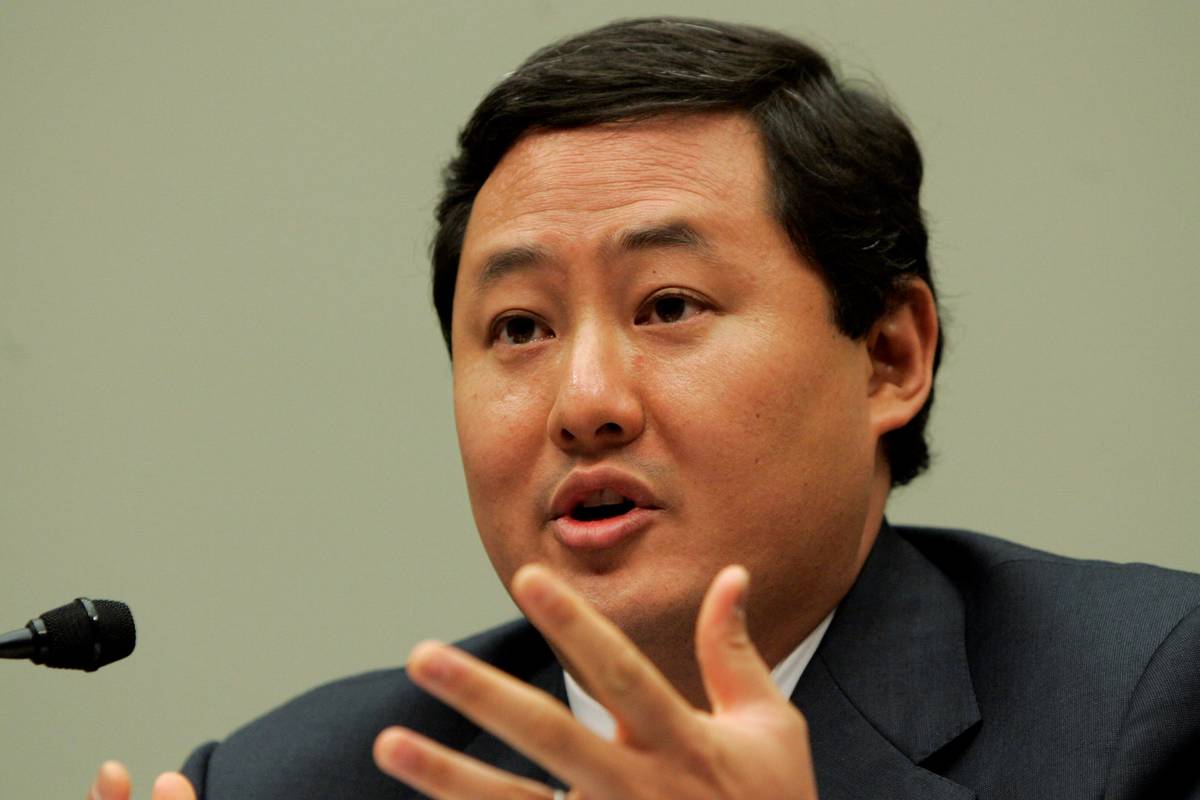Lawyer John Yoo says Trump has expansive executive powers
WASHINGTON — President Donald Trump plans to borrow a page from last month’s Supreme Court ruling that overrode his effort to end President Barack Obama’s DACA program as a weapon to help him enact new policies, which were not passed through Congress.
And his tactical guru is John Yoo, one of the attorneys who authorized the use of enhanced interrogation techniques including waterboarding in 2002 when he served under President George W. Bush.
Trump told Fox News’ Chris Wallace during an interview that aired Sunday that he planned to use an argument pushed by Yoo to write his own immigration plan, which would include DACA, and a health care plan within weeks.
“The Supreme Court gave the president of the United States powers that nobody thought the president had, by approving, by doing what they did — their decision on DACA,” Trump said. “And DACA’s going to be taken care of also. But we’re getting rid of it because we’re going to replace it with something much better.”
Yoo, now a law professor at the University of California Berkeley, told the Review-Journal that he spoke to someone high up in the White House after Chief Justice John Roberts wrote a 5-4 opinion that rejected the Trump administration’s bid to repeal DACA, the initiative announced in 2012 to shield from deportation undocumented immigrants brought into the country illegally when they were minors.
Axios reported that a copy of a National Review article Yoo had written about the decision was seen on the Resolute Desk in the Oval Office. “According to Chief Justice Roberts, the Constitution makes it easy for presidents to violate the law, but reversing such violations difficult — especially for their successors,” the piece began.
No authority
Yoo argued that the Obama administration did not have the authority to implement DACA, which then-Secretary of Homeland Security Janet Napolitano described as an “exercise of our prosecutorial discretion.” And Obama admitted he did not have constitutional authority, saying in 2010 that he was not king and could not create his own immigration law.
Napolitano’s DACA memorandum also stipulated that successful applicants could qualify for work authorization, which arguably went beyond prosecutorial discretion.
Yoo went on to argue that since the top court ruled that Obama could enact what he considered an “extralegal” program — but Trump could not override the program without following administrative law procedures — Trump could do what Obama did, and Trump’s successor would be hamstrung by the Roberts precedent. The scheme would work even if Trump did not think he had constitutional authority.
Michael Kagan, a law professor and director of the UNLV Immigration Clinic, strongly disagreed with Yoo’s argument. Roberts decision hinged on the belief that an administration must “give clearer reasons and they have to give reasons that are sincere,” just as Roberts did last year when he ruled against the administration’s attempt to add a citizenship question to the census.
“It was really about process and about giving good reasons for what you’re doing,” Kagan said of Roberts’ ruling in the case of Department of Homeland Security v. Regents of the University of California. Regents had challenged Trump’s move to shut down DACA.
“Everyone agrees that the administration can end the DACA program, they just have to do it correctly,” Kagan added.
Roberts rules
“The dispute before the court is not whether DHS may rescind DACA. All parties agree that it may. The dispute is instead primarily about the procedure the agency followed in doing so,” Roberts wrote in his opinion joined by the high court’s four liberal justices.
Yoo mused that Trump could use the Homeland Security v. Regents decision to pass his own DACA bill, but this time applying prosecutorial discretion to not deport skilled workers, or refugees from Hong Kong escaping Beijing’s oppression, instead of so-called DREAMers.
“He could say, ‘I’m going to do it differently. I’m going to have a skills-based system. In a skills-based system, I will not enforce American law against you,’ ” said Yoo, whose book “Defender in Chief” comes out next week.
According to the publisher, St. Martin’s Press, “Defender in Chief,” argued, “Donald Trump isn’t shredding the Constitution — he’s its greatest defender.”
Another potential scenario, Yoo wrote in the National Review, would be for Trump “to create a nationwide right to carry guns openly. He could declare that he would not enforce federal firearms laws, and that a new ‘Trump permit’ would free any holder of state and local gun-control restrictions.”
Yoo also noted that given Trump’s longtime support for a payroll tax cut, “he could say to businesses, you know the IRS has so many things to do, I am ordering the IRS” to not go after companies that don’t collect Supplemental Security Income taxes.
Highly skeptical of Yoo’s argument, Kagan maintained that the Department of Homeland Security still had time to issue a memorandum to end DACA that met with Administrative Procedure Act criteria. “It would definitely be challenged,” Kagan noted, but “it would be up to the courts whether they issue an injunction.”
Contact Debra J. Saunders at dsaunders@reviewjournal.com or 202-662-7391. Follow @DebraJSaunders on Twitter.























